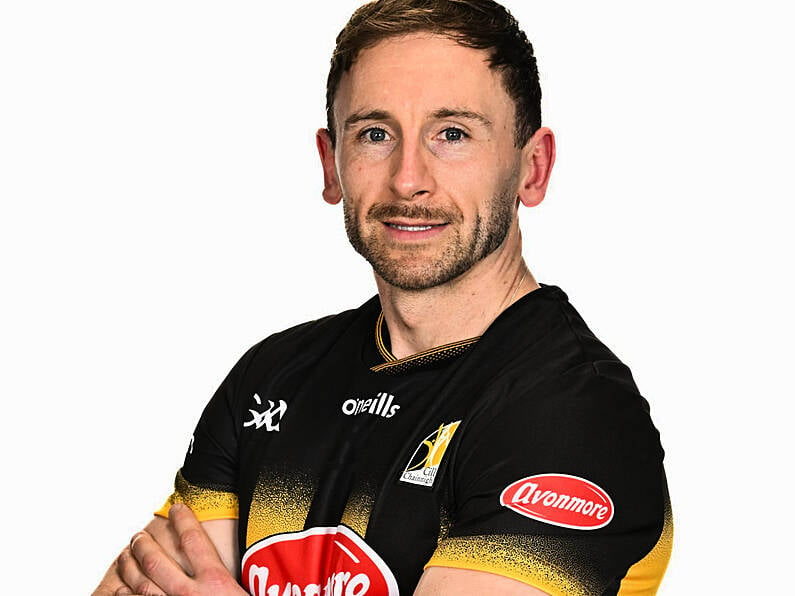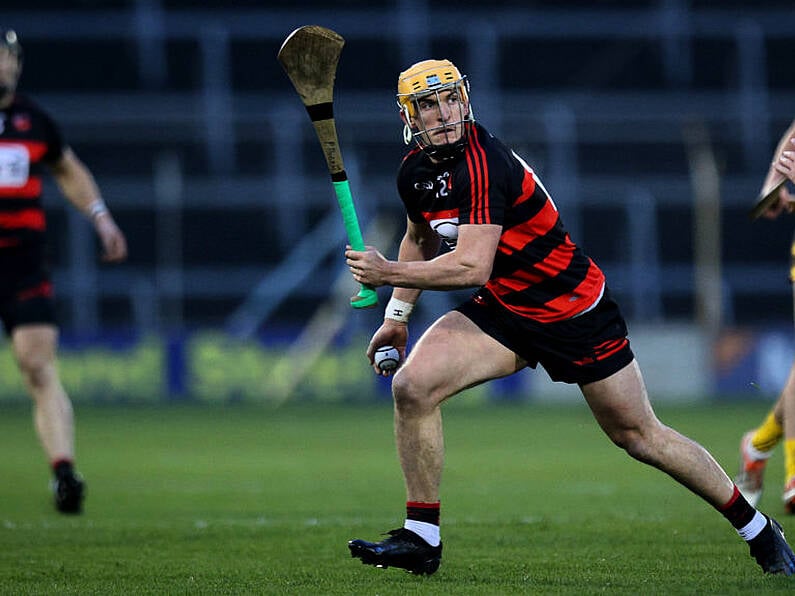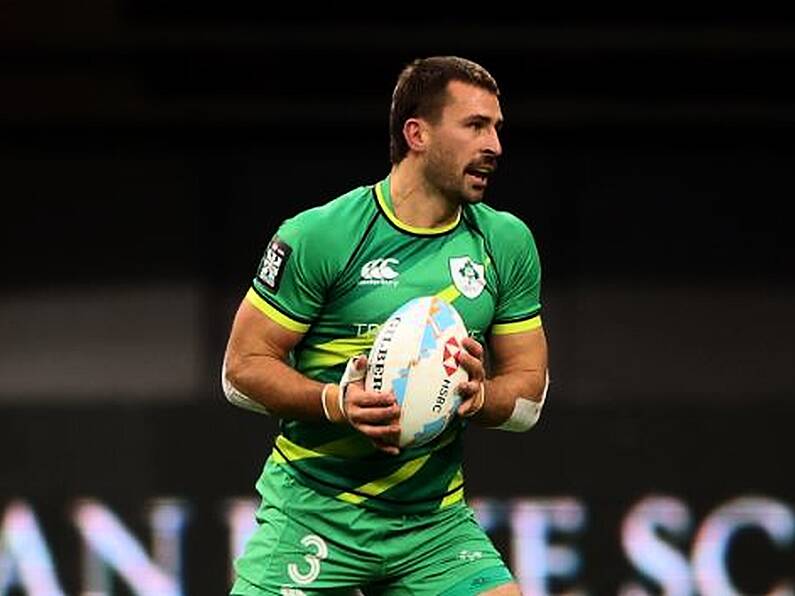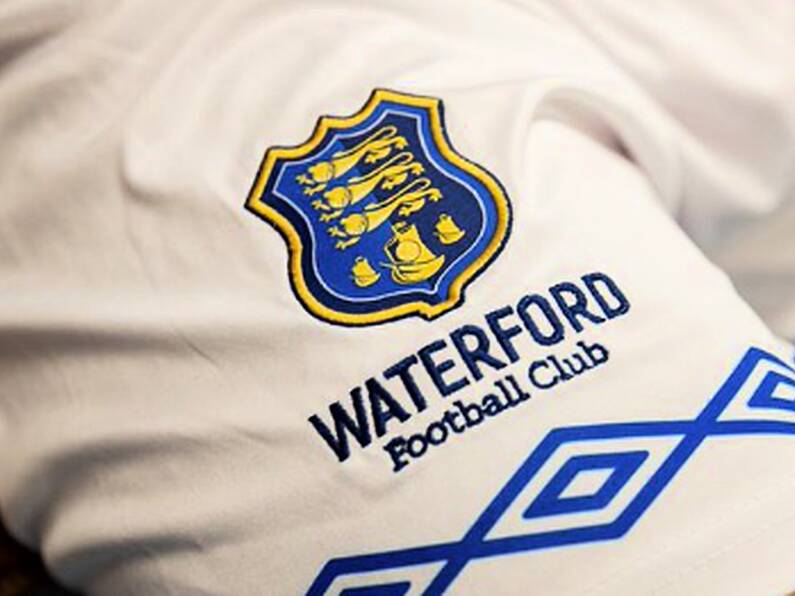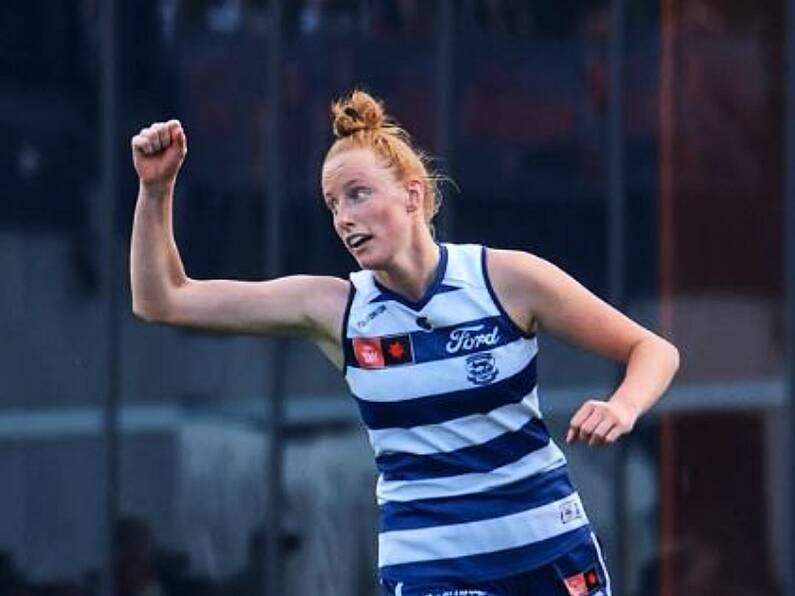Megan Fletcher may have bowed out at the quarter-finals stage of the European Games judo in Minsk, but the recently-declared Irish judoka is now a candidate to do big things at next year’s Tokyo Olympics.
The 32-year-old bowed out at the last-eight stage of the middleweight competition at the Chizhovka Arena, after winning her first two bouts in the one-day event.
Fletcher lost to a contest-ending ippon inflicted by Sanne van Dijke of the Netherlands, who went on to win silver, losing in the final to Margaux Pinot of France.
Fletcher – born in Reading, currently based at Bath University and who declared for Ireland along with brother Ben last year - scored a shido, the third most-important hold, while keeping Spain’s Sara Rodriguez scoreless in her opening round bout in the last-32.
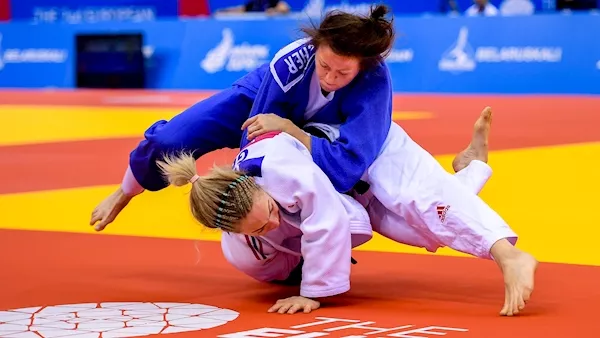
Megan Fletcher of Ireland, blue, in action against Sally Conway of Great Britain during their Women's Judo Middleweight preliminary round match at Chizhovka Arena on Day 3. Pic: Sportsfile
Despite a daunting CV, Fletcher scored a spectacular win in the last-16 over Britain’s Olympic bronze-medallist from Rio and European silver-medallist Sally Conway.
The Irish judoka scored a wasa-ari, outscoring Conway’s shido.
Ireland missed out on a chance to automatically qualify for Wednesday’s athletics team semi-finals, but still have an opening in Tuesday’s quarter-final repechage round, after finishing fifth of six countries in their first ever taste of DNA athletics (Dynamic New Athletics).
The fast-paced format, consisting of four sprints, two relays and three head-to-head field events saw Ireland lie third going into the final all-deciding mixed medley relay called “The Hunt”, where previous points tallies are converted to time advantages in the deciding race.

Sarah Lavin of Ireland, left, finishes second in the Women's 100m hurdles during Dynamic New Athletics qualification on Day 3. Pic: Sportsfile
However, the Irish got pushed down the rankings in the unique 2000m contest, featuring a staggered gate start, that saw Conall Kirk run the opening men’s 800m leg, Amy O’Donoghue the women’s 600m, Paul White the men’s 400m, and Vicky Harris the anchor women’s 200m leg.
Despite having a massive points lead going into “The Hunt”, hosts Belarus suffered some poor baton changeovers, and were pipped on the line by 0.02 seconds by the Czech Republic, who won the match.
Belarus still managed to qualify as best losers across the four matches, due to their large points allocation during the standard events.
Lativa and Lithuania also finished ahead of Ireland in the winner-takes-all contest.
Stephen Gaffney finished second in the men’s 100m, finishing in 10.67 seconds behind Czech Zdenek Stromsik, with Limerick’s Sarah Lavin scoring a similar placing in the women’s 100m hurdles in 13.46 seconds, close to her lifetime best of 13.23, as European champion Elvira Herman of Belarus won.

Stephen Gaffney of Ireland, left, finishes second in the Men's 100m during Dynamic New Athletics qualification on Day 3. Pic: Sportsfile
Fourth-place finishes out of the six nations were gained by Niamh Whelan in the women’s 100m and Gerard O’Donnell in the men’s 110m hurdles to win six points of both occasions in the 12-10-8-6-4-2 scoring system.
Ireland’s quartet of Brandon Arrey, Sinead Denny, Catherine McManus and Andrew Mellon finished fourth in the mixed 4x400m relay as the Czech Republic won in 3:19.05.
As has been the case in recent European Team Championships, many points were dropped by low finishes in the field events, as 18-year-old schools athlete Sophie Meredith finished last in the women’s long jump, with a best effort of 5.74 metres, earning Ireland two points.
Grace Casey’s best attempt in the women’s javelin may have only gone out to 40.11 metres, but a serious miscalculation by former European champion Tatsiana Khaladovich of Belarus saw the home favourite’s head-to-head attempt against Casey fly out of the landing quadrant, meaning Casey scored an unexpected win over the continental gold-medallist.
Eventually, Casey picked up six points, and 17-year-old Longford AC prospect Nelvin Appiah won seven points out of twelve in the men’s high jump.
The Irish schools champion opened the competition with a 2.20m attempt that would have added ten centimetres to his lifetime best, but Appiah narrowly failed to clear.

Nelvin Appiah of Ireland competes in the Men's High Jump during Dynamic New Athletics qualification on Day 3. Pic: Sportsfile
Ireland’s next match-up is in tomorrow’s quarter-finals.
Robert Jon McCarthy was Ireland’ highest finisher in the men’s cycling road race in 30th position, as Italy’s Davide Ballerini took a solo victory, ahead of Estonia’s Alo Jakin and Austria’s Daniel Auer.
Aoife Gormally came 15th in the women’s shotgun trap, with Derek Burnett 31st in the men’s equivalent.


